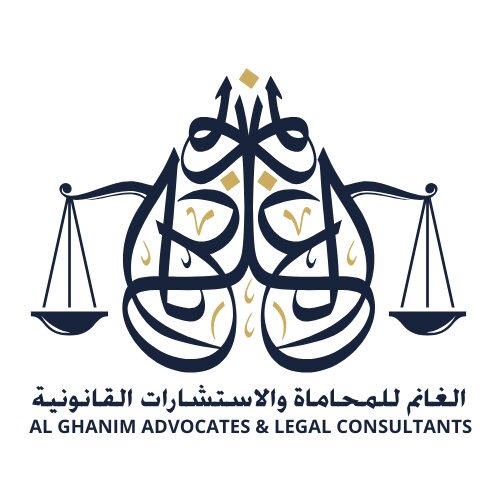
Best Aviation Lawyers in Riyadh
Share your needs with us, get contacted by law firms.
Free. Takes 2 min.
List of the best lawyers in Riyadh, Saudi Arabia

About Aviation Law in Riyadh, Saudi Arabia
Aviation Law is a complex field, which governs all legal issues related to civil aviation activities in Saudi Arabia, with Riyadh being its capital and one of the leading aviation hubs. Saudi Arabia is governed by a combination of Sharia law and several regulatory bodies. In regard to aviation, the key regulatory body is the General Authority for Civil Aviation (GACA), which oversees all civil aviation-related entities and operations within Saudi Arabia. This mandate includes everything from airspace control, issuing flight permits, airline licensing, to mandating safety standards and procedures etc. Furthermore, being a part of the global community, Saudi Arabia is subject to the conventions of the International Civil Aviation Organization (ICAO), an organization which sets international norms and standards for aviation safety, security, efficiency, and more.
Why You May Need a Lawyer
Complexities and the multi-jurisdictional nature of aviation laws can often warrant the need for a legal expert. Those involved in the aviation sector may require legal advice on a variety of matters that may include insurance claims, regulatory compliance, air traffic control issues, and aviation accidents investigations. If you are starting or operating an airline, acquiring or selling aircraft, or building an airport, various legal and regulatory challenges may arise that require legal representation. Similarly, passengers may need to consult a lawyer for issues related to personal injury claims arising from aviation accidents, issues related to lost baggage, and customer rights in situations like flight cancellations or delays.
Local Laws Overview
The GACA Regulations are the primary source of aviation laws in Saudi Arabia. They encompass a wide range of areas including registration and certification of aircrafts, qualifications and duties of flight crew, operating rules, air traffic services, and procedures to be followed in case of an accident. It is crucial for anyone involved in any aviation activity to comply with these regulations. Customs laws, immigration rules and several other aspects are also relevant depending on a specific scenario. In addition, it is crucial to consider the adherence to the international conventions that Saudi Arabia is a signatory of, like the Chicago Convention on International Civil Aviation and the Montreal Convention.
Frequently Asked Questions
1. Can foreign airlines operate in Saudi Arabia?
Yes, foreign airlines can operate in Saudi Arabia, provided they comply with the regulations put forth by the GACA and have obtained the necessary operating licenses.
2. What are the compensation rights for flight cancellations?
Compensation for flight cancellations are typically covered under the airline's policies and the GACA regulations aligning with ICAO standards. The specific rights and compensation amounts can vary depending on the circumstance and possibly, the airline.
3. Who investigates aviation accidents in Riyadh?
The Aircraft Accident Investigation Bureau (AAIB) is responsible for investigating aviation accidents in Saudi Arabia.
4. Can drones be flown in Riyadh?
Yes, drones can be flown in Riyadh, but specific regulations and licensing requirements need to be met. The GACA provides guidelines on this.
5. How are Saudi Arabia's aviation laws compatible with international standards?
Saudi Arabia is part of various international aviation agreements and is a member of ICAO, and thus its aviation laws align closely with international standards.
6. What role does Sharia Law play in aviation?
Sharia Law plays a crucial role in all aspects of legal practice in Saudi Arabia, including Aviation. However, specifics may vary depending on the case and an aviation lawyer with knowledge of Saudi law should be consulted for accurate advice.
7. Are there laws for protecting passenger rights?
Yes, the GACA has set out comprehensive laws for protecting passenger rights, ensuring their safety, and securing fair treatment in case of inconveniences.
8. What body oversees aviation safety in Saudi Arabia?
The General Authority for Civil Aviation (GACA) oversees aviation safety in Saudi Arabia.
9. Can I own a private plane in Riyadh?
Yes, you can own a private plane in Riyadh, however it must be registered through the GACA and comply with all safety regulations.
10. What happens to violators of aviation laws?
Violations of aviation laws are taken very seriously in Saudi Arabia and can result in hefty fines, revocation of licenses, and in severe cases, imprisonment.
Additional Resources
The General Authority for Civil Aviation (GACA), the Saudi Ministry of Transport, the Aircraft Accident Investigation Bureau (AAIB), and the International Civil Aviation Organization (ICAO) are crucial resources for those seeking deeper knowledge or requiring legal assistance in aviation-related matters.
Next Steps
If you feel that you need legal assistance in aviation-related matters in Riyadh, the first step would be to engage with a legal professional specialized in aviation law. They can provide you with case-specific advice and guidance, helping you navigate the complexities of the law. Remember, due to the intricacies of aviation law in the particular context of Saudi Arabia, it is crucial that your legal counsel is well-versed in the relevant local regulations and international conventions that might apply to your case.
Lawzana helps you find the best lawyers and law firms in Riyadh through a curated and pre-screened list of qualified legal professionals. Our platform offers rankings and detailed profiles of attorneys and law firms, allowing you to compare based on practice areas, including Aviation, experience, and client feedback.
Each profile includes a description of the firm's areas of practice, client reviews, team members and partners, year of establishment, spoken languages, office locations, contact information, social media presence, and any published articles or resources. Most firms on our platform speak English and are experienced in both local and international legal matters.
Get a quote from top-rated law firms in Riyadh, Saudi Arabia — quickly, securely, and without unnecessary hassle.
Disclaimer:
The information provided on this page is for general informational purposes only and does not constitute legal advice. While we strive to ensure the accuracy and relevance of the content, legal information may change over time, and interpretations of the law can vary. You should always consult with a qualified legal professional for advice specific to your situation.
We disclaim all liability for actions taken or not taken based on the content of this page. If you believe any information is incorrect or outdated, please contact us, and we will review and update it where appropriate.














